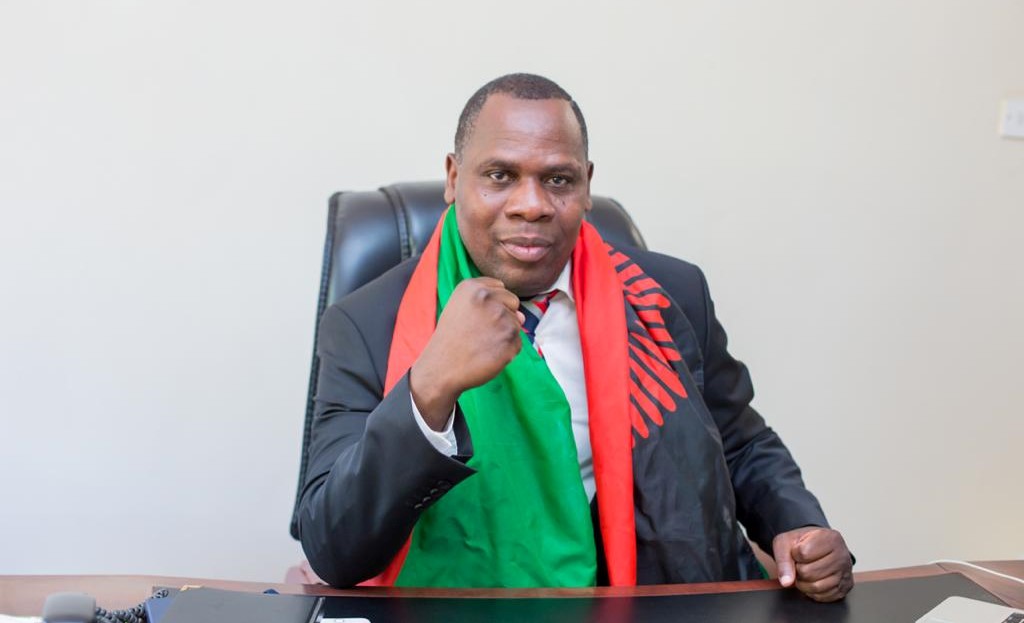We did not leave you alone—HRDC
Recently, the Human Rights Defenders Coalition (HRDC) woke up from its slumber and called for an early election should government fail to address the worsening socioeconomic challenges. Our Mzuzu Bureau Supervisor Joseph Mwale catches up with HRDC chairperson Gift Trapence to unpack the sticky issues. Excerpts:
There are public concerns that HRDC has been in hibernation since President Lazarus Chakwera ascended to power in 2020. Where have you been?

This perception isn’t accurate. I strongly disagree. People who hold this view might not have closely followed HRDC’s work. HRDC has not been silent, but it’s just that our efforts haven’t always been visible through protests. For instance, in December 2021, we assessed the Tonse Alliance Government’s performance and broken promises. In June 2022, we highlighted economic mismanagement and indecisiveness. We issued ultimatums for resolving crises such as the fuel shortage. In July 2023, we successfully pushed back against high tax rates on imported vehicles. We have met the President twice to discuss governance issues. Our recent statement aligns with HRDC’s ongoing work and various approaches to promoting change.
What’s the main message you wanted to relay at the press conference where you called for fresh presidential polls?
The message was simple: Malawians are facing economic challenges and the government’s response has not been effective. We believe urgent and radical action is necessary to address the economic crisis. The government should take this situation seriously and show tangible commitment instead of continuing with business as usual.
What has changed since you started engaging the President?
We have engaged with the President to address governance and accountability issues. This recent engagement is not a change, but rather a continuation of our efforts to push for meaningful change in the country.
What wrong has the government, especially the President, done?
The government has not shown enough commitment to transparency and accountability, particularly in procurements. There’s a lack of action against suspected abuses, as seen in the procurement of fertiliser for the Affordable Inputs Programme. The promised public service reforms need to be implemented and the recommendations made public. Additionally, the government’s response to crises, like food security and fuel availability, needs to be more effective.
What do you make of Chakwera’s globetrotting allegedly to strike deals for the good of the country?
While the President may be pursuing deals, the impact hasn’t been felt by ordinary Malawians on the ground. There is a need for tangible short, medium, and long-term solutions. For instance on access to maize in Admarc depots, the completion of infrastructure projects, like the Nsanje-Marka-Bangula railway line, should be prioritized to expedite fuel importation. Austerity measures must extend beyond rhetoric to real action.
In your considered view, is the country redeemable?
Yes, but urgent and dedicated action is required. The current situation feels like economic slavery, and the government needs to respond with an economic crisis strategy. The President and his Cabinet can’t afford to be passive observers. They must acknowledge the severity of the crisis and take immediate action.
What suggestions do you have for the Government?
The government should prioritise accountability in procurements, swiftly address corruption and implement promised public service reforms. Tangible solutions are needed for food security and fuel availability, including completing critical infrastructure projects. The government’s actions should align with its austerity measures, reflecting its commitment to resolving the crisis.
If things do not change, how do you justify early elections which can be costly as well?
Section 12 of the Constitution is clear that the authority to exercise power of the state is conditional upon sustained trust of the people of Malawi. Proposal for early elections seams to other quarters very extreme, but would be a drastic measure driven by the urgency of the crisis. While there’s a cost, it is justifiable when weighed against the ongoing suffering of Malawians and nothing is improving and the government fails completely to address the crisis. The cost of elections is a temporary concern compared to the long-term impact of a struggling economy on citizens’ lives.
What is HRDC’s role in holding authorities accountable for degrading living conditions?
HRDC employs various strategies to engage the government. We address ministries and public officers on pressing issues and communicate with the public about our actions. If needed, we’ll escalate our efforts to ensure change happens. HRDC won’t stand by while the economic crisis continues to harm the people.
What is your take on public perceptions that HRDC contributed to the rise of a ‘failing’ government? HRDC didn’t usher in the government, but we fought for electoral justice and fairness. Accusations of supporting the current government’s rise are unfounded. Our role is to ensure credible and fair elections, not to promote specific candidates.The suffering of Malawians due to the economic crisis is akin to modern-day economic slavery. The President and his Cabinet should recognise the severity of the situation and take immediate, emergency measures. Ordinary citizens can’t endure the crisis while leaders act as if all is well. Urgent action is required to normalize the situation and alleviate the suffering of the people.





